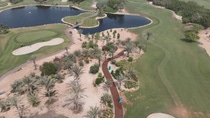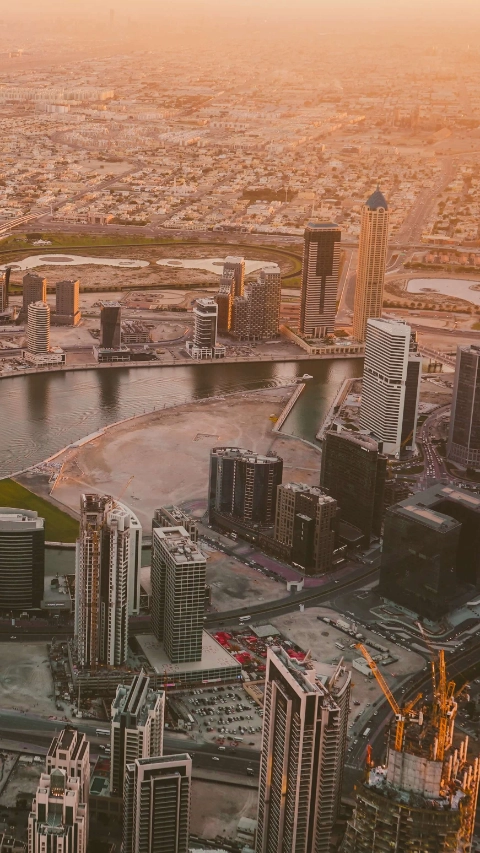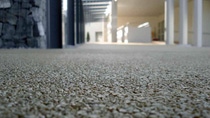Construction
Teeing off in Dubai - Golf Course Upgraded with Elastopave®
The tees, fairways, greens and even the bunkers so unpopular with players are of course the most important features of a golf course. However, in addition to this game-related infrastructure, users and visitors appreciate good access throughout the course. For this very reason, the Jebel Ali Golf Resort in Dubai is now using a pathway system surfaced with Elastopave®.

Weaving between palm trees, the new pathway system of the 72-par course that opened in 1998 connects the playing area with restaurants, changing rooms and other facilities. Thanks to the hard-wearing yet extremely flat surface of Elastopave, players on foot can get from A to B just as comfortably as those who prefer the golf cart – the open-pored structure even absorbs some of the tire noise as well.
For the material, suitable mineral mixtures are bonded with a polyurethane binder so as to create a strong and water- and air-permeable wearing course that is extremely durable and has low temperature sensitivity. Since the mineral component is encased by a smooth PU layer, surfaces of Elastopave are also comparatively resistant to soiling. The color and design can be individually adapted to the surroundings through the choice of mineral mix – this was also important to the clients in Dubai, so the new paths blend well into the existing design of the site. Another key argument in favor of Elastopave is its high water permeability – since the material does not seal the surface, water used for sprinkling the course, for example, can seep away in seconds rather than puddling on the paths. In the Jebel Ali case, this has significantly reduced the need for supplementary drainage solutions. And wherever water is allowed to permeate, air can of course also freely circulate – which in Dubai’s hot desert climate has a pleasant effect on the paths’ surface temperature.
Featured product
Related articles
Consult with an expert
Self-service solutions:



